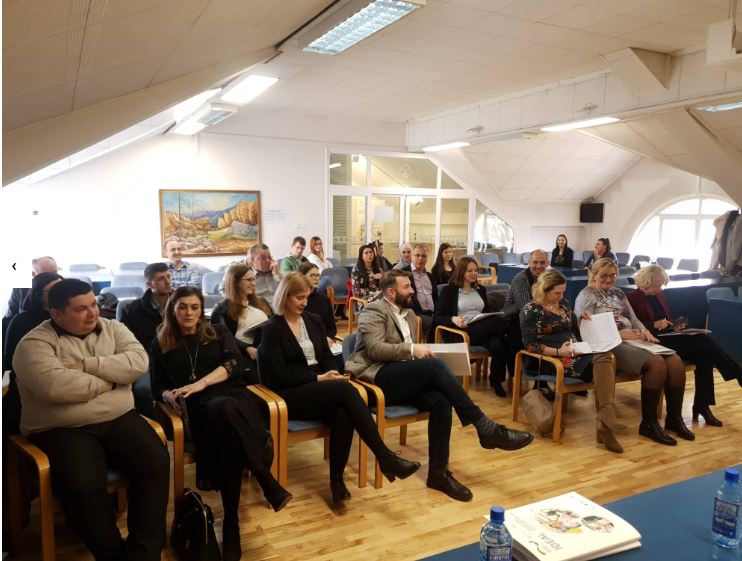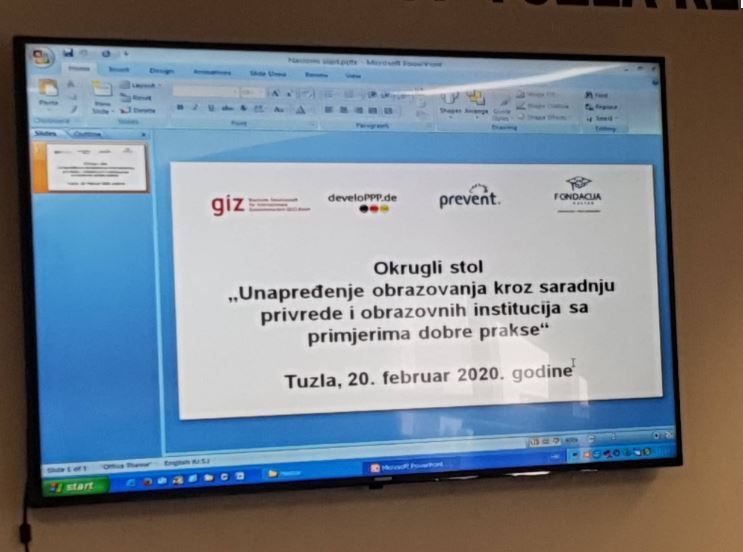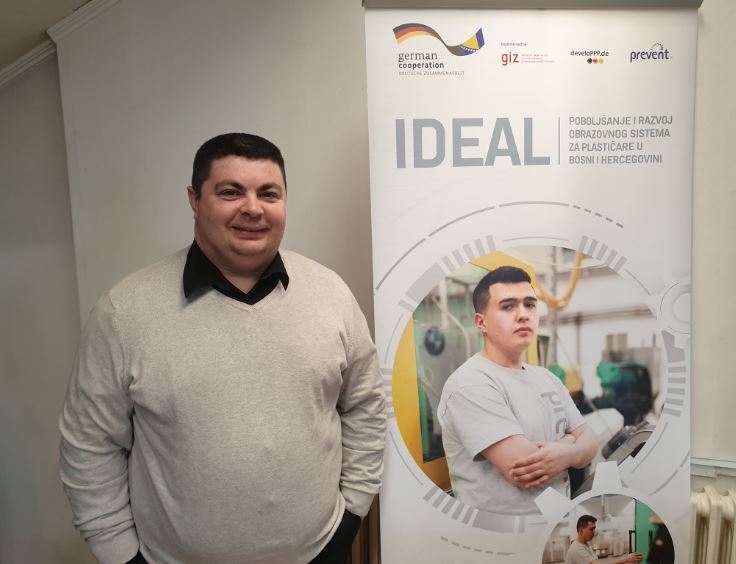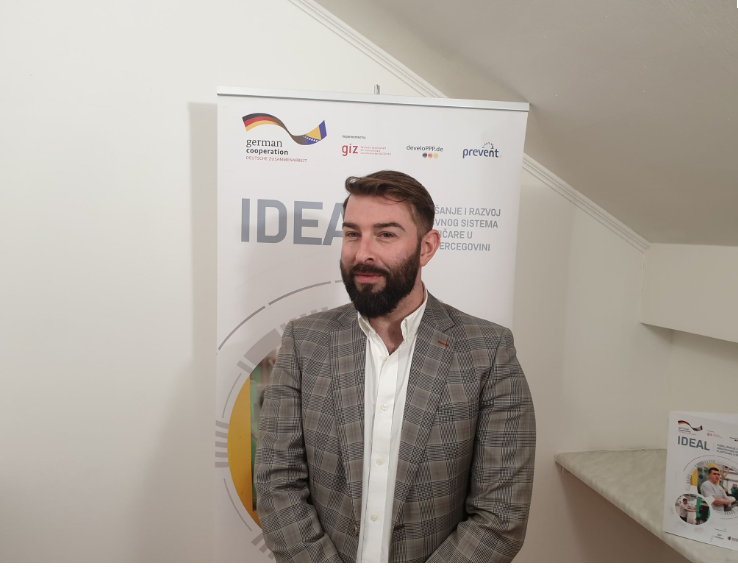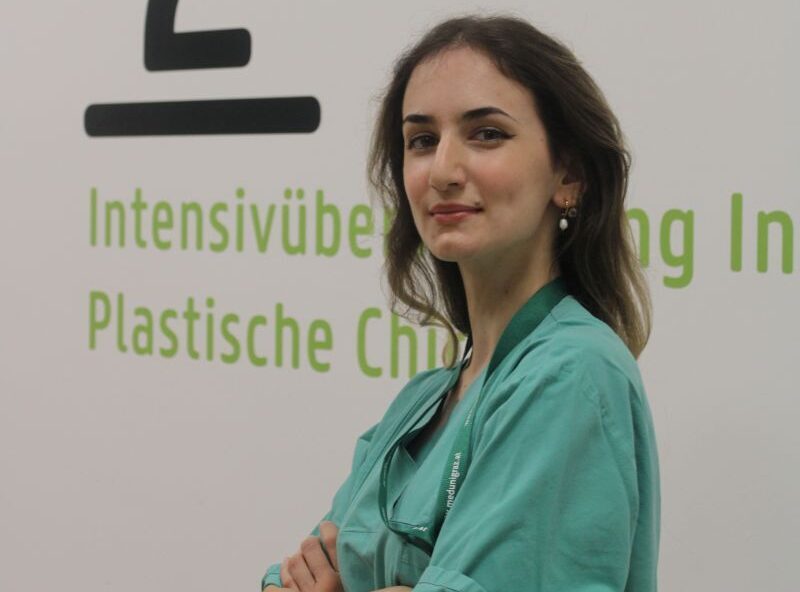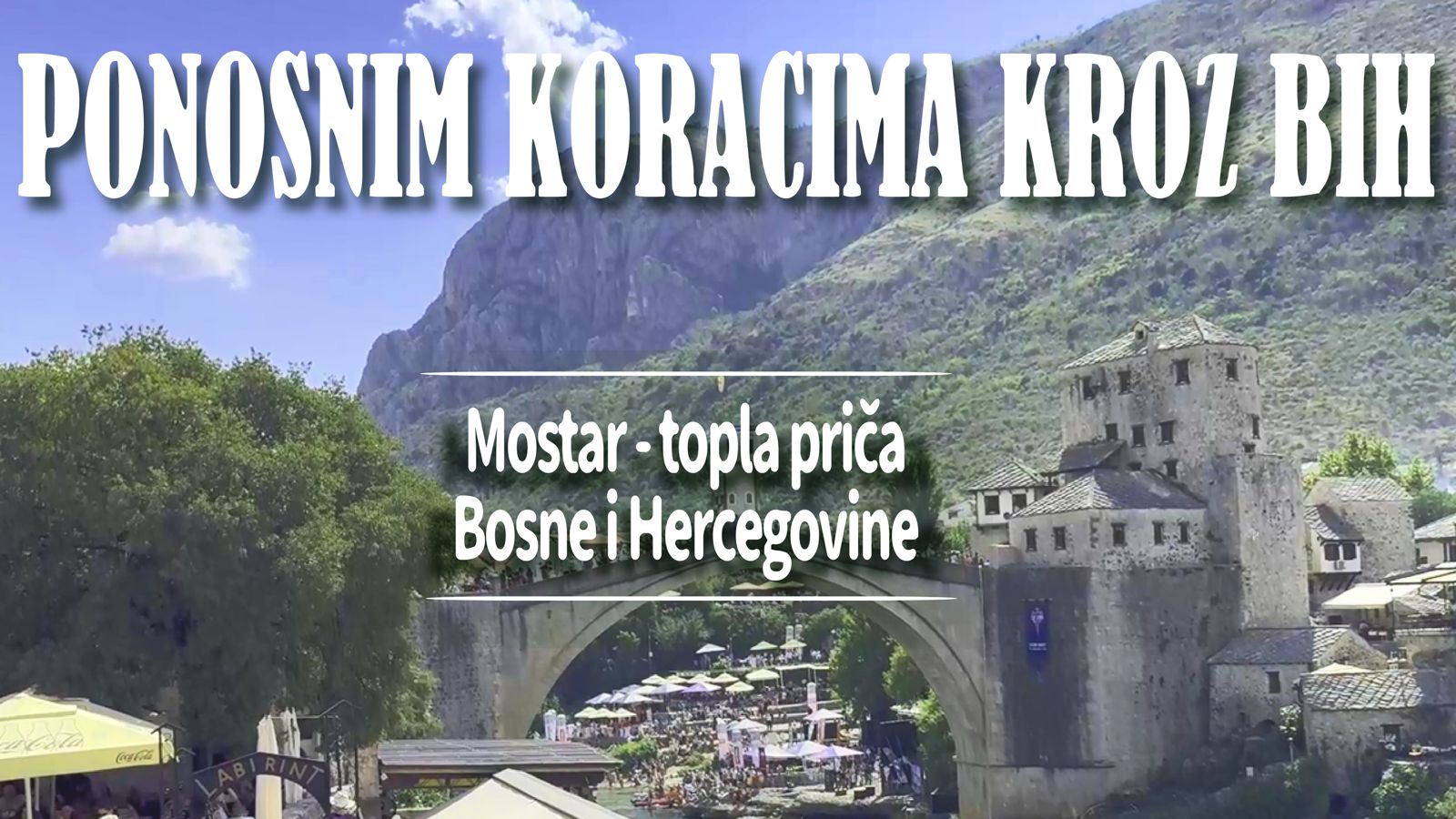Roundtable “Improving education through cooperation between economy and educational institutions with examples of good practice”, organized by the Hastor Foundation, German GIZ and PREVENT COMPONENTS d.o.o. Goražde was held on Thursday, February 20, in Tuzla.
Participants of the roundtable discussed the possibilities of participation of the economic sector in Bosnia and Herzegovina in the creation of educational policies, ways of overcoming the problem of shortage of skilled labor, initiatives and activities implemented in order to harmonize the education sector with the needs of the labor market, and the occupational standard and its importance for the economic sector.
“In accordance to good practice we have had in other cantons, in regard to the cooperation between the economy and schools, specifically in the field of vocational secondary education, we have today taken the initiative to achieve similar successful cooperation in the area of Tuzla Canton. Namely, we have been able to ensure the necessary legal and legitimate conditions so that a school in BPC is able to send a whole plastic worker class to full-time internships at companies in their city, all within regular formal education”, said the Managing Director of the Hastor Foundation, Seid Fijuljanin. He noted that the whole process required a lot of preparation on all sides and advocacy at all levels.
“Our persistence and our honest goal were quickly met with understanding, and ultimately we achieved remarkable success. We believe that this is the only right approach to formal vocational education, and besides the fact that it seems good for employers (who receive properly educated future employees), for parents and children (who will have an opportunity for adequate employment in their field), we also believe that through this project we can achieve something far more important and long-term, which is creating an atmosphere in which good things can happen, in which opportunities are provided, and in which opportunities turn into success stories of young people,” said the Managing Director of the Hastor Foundation.
Currently, only one school in BiH offers training in plastic processing – Secondary Vocational School “Džemal Bijedić” Goražde. The principal of this school, Admir Kurtović, shared his experiences at today’s roundtable.
“The occupational standard is the first step to enhancing cooperation between the school and the industry, as it aims to define all the necessary knowledge, skills, and the associated independence and responsibility that a person must have in order to be able to work in a particular field. Clearly defined occupational and qualification standards are prerequisites for obtaining quality curricula. The standard of interest for plastic workers is specific since it was initiated by businessmen, more specifically Prevent Components d.o.o. Goražde, and therefore it represents the guarantee of the market’s need for a new profession, and the strengthening of the link in the implementation of education between the school and the labour market, which is the basis of dual education”, said principal Kurtović.
The Hastor Foundation, PREVENT COMPONENTS d.o.o. Goražde and GIZ are implementing the project “IDEAL- Improvement and Development of the Educational System for Plastic Workers in Bosnia and Herzegovina” within the framework of develoPPP.de, a program of the German Federal Ministry of Economic Cooperation and Development (BMZ).
The project has supported the development of standards for the profession of a “plastic converter” and has made BiH richer for a unique document which defines all the necessary knowledge and skills that a person must have in order to be able to work in this field, with different employers in the plastic sector industry. It has also supported the development of a state-of-the-art curriculum in BiH for the aforementioned occupation, which was drafted on the basis of occupational standards and adjusted fully to the needs of the labor market.
(TIP)
